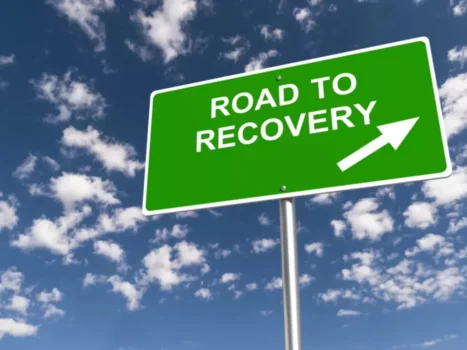
In this video, consultant hepatologist Mark Wright explains liver disease and how not drinking alcohol can help. Even if you have been a heavy drinker for many years, reducing or stopping your alcohol intake will have important short-term and long-term benefits for your liver and overall health. A liver transplant may be required in severe cases where the liver has stopped functioning and does does alcohol affect your kidneys not improve when you stop drinking alcohol. Less commonly, alcoholic hepatitis can occur if you drink a large amount of alcohol in a short period of time (binge drinking). The liver can develop new cells, but prolonged alcohol misuse (drinking too much) over many years can reduce its ability to regenerate. If you’re a heavy drinker, you may need to wean off alcohol to let your body adjust.
Considerations When Drinking Alcohol with Chronic Kidney Disease
In the kidneys, ROS is generated via both enzymatic and non-enzymatic processes [22,23,27,32,36,37]. In addition, Das et al. reported that alcohol consumption impairs the ability of CAT to catalyze the decomposition of H2O2 in the kidneys [41]. This subsequently promotes the conversion of H2O2 to the more reactive hydroxyl radicals, which cause damage in antioxidant capacities and mitochondria in renal cells [34,42,43].
- In addition to filtering blood, your kidneys do many other important jobs.
- The NKF explains that chronic drinking can cause liver disease, which impairs the rate of blood flow to the kidneys.
- It can be hard to find (or even know) the balance of how much alcohol your body is able to handle.
- Another thing that will help your liver’s journey in recovery is good nutrition.
A Note on Gender and Sex Terminology
But that doesn’t necessarily mean that you are destined to get worse. However, when the intake is increased to over 30 g per day in men and 20 g in women, there is not only an increased risk of fibrosis but also an increased risk of progression to cirrhosis. According to the 2020–2025 Dietary Guidelines for Americans, moderate alcohol use is defined as up to one standard drink per day for women or two standard drinks a day for men. If the liver is healthy, fatty liver disease can be reversed, and hepatocytes can start to regenerate themselves over a relatively short period.
Influence of alcoholism on the prognosis of patients with CKD
People who require treatment for alcohol-related liver diseases may be referred to an addiction medicine specialist to be assessed for an alcohol use disorder. Mental health counseling is also important because increased alcohol intake may often be in response to underlying mental health issues like increased stress, depression or anxiety. Having hepatitis C or other liver diseases with heavy alcohol use can rapidly increase the development of cirrhosis. In liver failure, the liver is severely damaged and can no longer function. Other organs, such as the kidneys, and body systems such as the respiratory system, may also begin to fail. This article will discuss the stages of alcoholic liver disease, the possibilities of reversing the disease, typical symptoms, complications, diagnosis, treatment options, and how best to support the liver during treatment.
Help to Stop Drinking
Additionally, the stomach, large intestine, esophagus, and even the mouth can absorb small amounts of ethyl alcohol [21]. Whereas AKI tends to resolve with time, CKD may worsen over time — although some individuals are able to stay relatively stable with CKD with close monitoring and lifestyle changes, such as quitting alcohol. Alcohol is a toxic substance that can cause dependence and other negative health effects. Sometimes, AKI can resolve over time if a person makes sure to stay hydrated. Scientists are not sure whether an association exists, and they are unsure as to the underlying mechanisms. Alcohol is a toxic substance that can cause dependence alongside a range of other negative health effects.

Progressive Symptoms
- More than two drinks a day can increase your chance of having high blood pressure.
- You’ll only be considered for a liver transplant if you have developed complications of cirrhosis despite having stopped drinking.
- We think that the enhancement of CAT activities may not come from high concentration of ethanol, but rather from the compensatory improvement of antioxidant capacity after the intervention with low-concentration ethanol in the early stage.
- According to a 2022 review, symptoms do not usually manifest until stage 4 or 5 of the disease.
In addition, excess fluid accumulates in spaces between cells, clinically manifested as swelling (i.e., edema) of the lower back and legs. As long as cirrhotic patients remain unable to excrete sodium, they will continue to retain the sodium they consume in their diet. Consequently, they will develop increasing ascites and edema and experience weight gain.
Such modified phospholipids may in turn activate immune cells called neutrophil granulocytes, which further aggravates oxidative stress, promoting a vicious cycle (Latchoumycandane et al. 2015). That said, epidemiological data have yet to confirm a relationship between alcohol consumption and chronic kidney disease. A recent meta-analysis (Cheungpasitporn et al. 2015) found little support for such a relationship.

Alcohol spiked with zolpidem and midazolam potentiates inflammation, oxidative stress and organ damage in a mouse model

In the absence of ADH, when body fluids are overly dilute, the kidneys dilute the urine, allowing more water to leave the body. “Normal” urine flow rate is 1 milliliter per minute (i.e., approximately 1 to 1.5 L/day), but this rate can vary widely, depending on water intake or dehydration level, for instance. Drinking alcohol to excess is linked to several health problems, including liver disease and an increased risk of some cancers (not to mention risks from drunk driving or accidental injuries while intoxicated).

Oxidative damage after chronic ethanol administration


